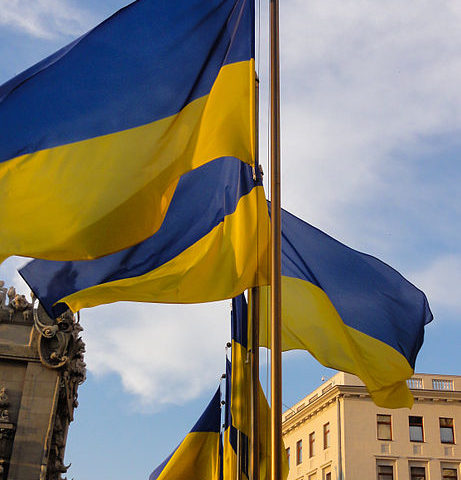
Police hunt down football fans as brawl leaves one man fighting for his life
March 5, 2023
F1 LIVE: George Russell disagrees with Lewis Hamilton, Brundle leaves fans in stitches
March 6, 2023
As Ukraine seeks closer ties with the European Union, the question of whether it is enough for the country to simply provide military protection to Europe has been raised. While Ukraine has taken significant steps towards meeting the political and economic criteria for EU membership, the issue of military defense remains a key concern.
Since 2014, Ukraine has been locked in a conflict with Russia over the annexation of Crimea and ongoing tensions in the Donbass region. Ukraine has sought support from the West, including the EU, in its efforts to counter Russian aggression. The EU has imposed economic sanctions on Russia in response to its actions in Ukraine and has provided financial and humanitarian aid to Ukraine.
However, the question remains whether military protection alone is sufficient for Ukraine to join the EU. The EU has made clear that it expects potential new members to meet certain criteria in areas such as democracy, the rule of law, human rights, and economic reform. While military defense is an important part of EU security, it is only one aspect of the broader European security framework.
In addition, the EU places great importance on the ability of potential new members to cooperate effectively with existing members. This includes alignment with EU policies and standards, as well as a willingness to work with other members on issues such as climate change, migration, and the digital economy.
For Ukraine, this means that military protection alone is not enough to secure EU membership. The country must continue to make progress in areas such as anti-corruption reform, judicial independence, and economic modernization. This will require sustained efforts and a long-term commitment from the Ukrainian government.
At the same time, the EU must be willing to engage with Ukraine and support its efforts towards EU membership. This includes providing financial and technical assistance, as well as offering a clear roadmap for accession. The EU should also continue to support Ukraine’s efforts to counter Russian aggression and maintain its territorial integrity.
It is worth noting that Ukraine is not the only country seeking closer ties with the EU through military cooperation. Countries such as Georgia and Moldova have also sought closer military ties with the EU in recent years. However, like Ukraine, these countries face significant challenges in meeting the broader criteria for EU membership.
In conclusion, while military defense is an important part of European security, it is not sufficient for Ukraine to join the EU. The country must continue to make progress in areas such as democracy, the rule of law, and economic reform, and the EU must be willing to support these efforts. Ultimately, Ukraine’s path to EU membership will require sustained effort and commitment from both the country and the EU. Photo by Guillaume Speurt from Vilnius, Lithuania, Wikimedia commons.




